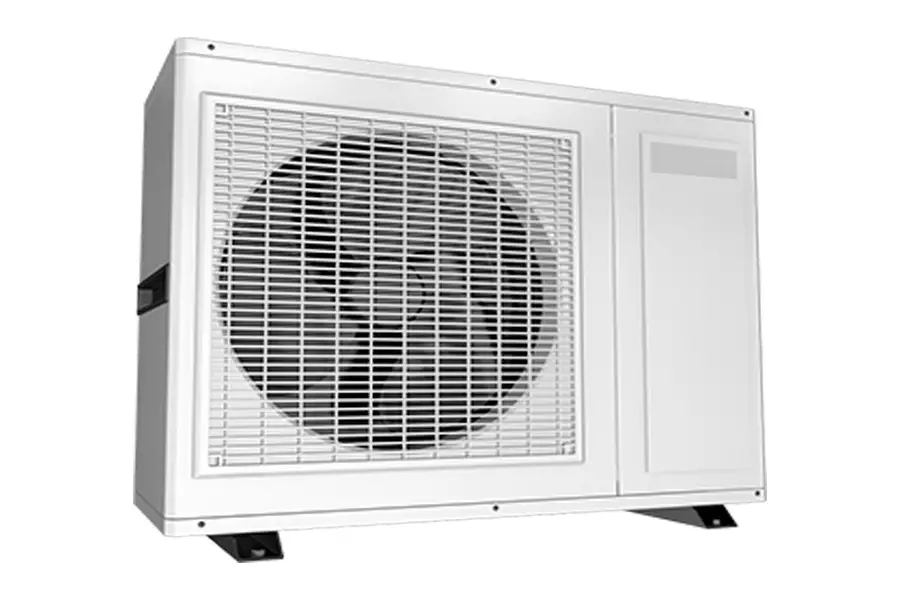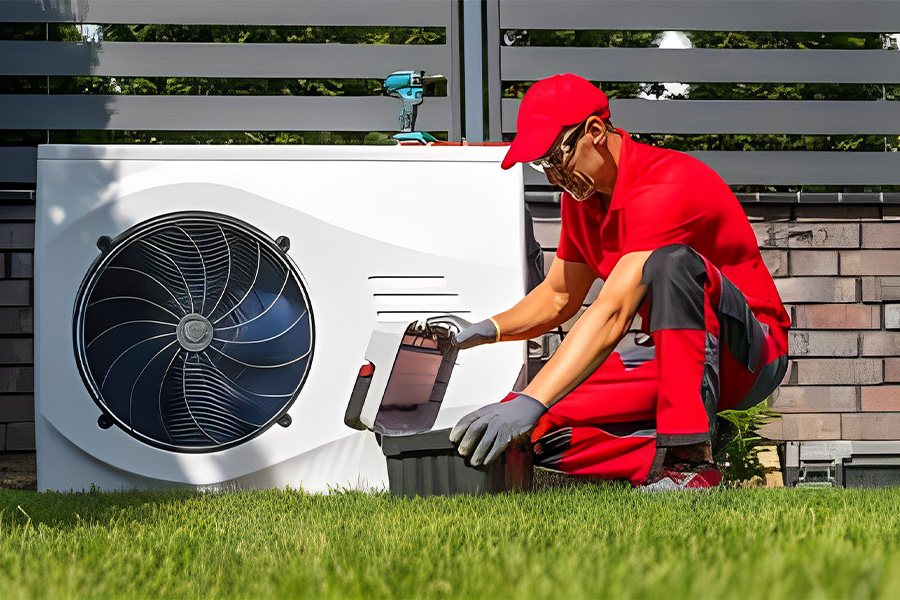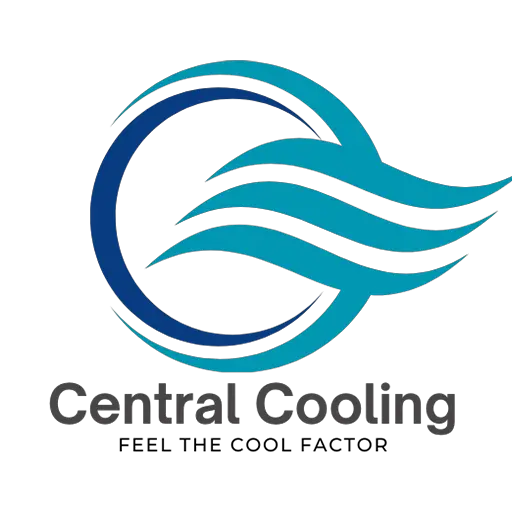Introduction:
As the winter chill sets in, homeowners start relying on their heating systems to keep their homes warm and comfortable. While there are various heating options available, one popular choice is a heat pump. But how does a heat pump work in winter?
A heat pump is a versatile heating and cooling system that can efficiently keep your home warm during the winter months. Unlike traditional heating systems that generate heat, a heat pump transfers heat from the outside to the inside of your home.
What Is A Heat Pump?
A heat pump is a device that transfers heat from one place to another, providing both heating and cooling capabilities. It works by moving heat rather than generating it, making it an energy-efficient alternative to traditional heating and cooling systems.
How Does A Heat Pump Work In Winter?
 Heat pumps work on the principle of transferring heat rather than generating it. They use a refrigeration cycle to extract heat from the outside air, even when the temperature is low, and transfer it indoors.
Heat pumps work on the principle of transferring heat rather than generating it. They use a refrigeration cycle to extract heat from the outside air, even when the temperature is low, and transfer it indoors.
Here’s how a heat pump works in winter:
- 1. Absorbing Heat: The outdoor unit of the heat pump contains a refrigerant that absorbs heat from the outside air. Even in cold temperatures, there is still some heat energy present.
- 2. Compressing the Refrigerant: The absorbed heat is transferred to the refrigerant, turning it into a gas. The compressor in the heat pump increases the pressure of the gas, raising its temperature.
- 3. Releasing Heat: The heated refrigerant gas is then circulated to the indoor unit of the heat pump. Inside your home, the refrigerant releases heat, which warms up the air in the living spaces.
- 4. Distributing Warm Air: The warm air is distributed throughout your home using the ductwork or a ductless system. The heat pump continuously circulates the warm air until the desired temperature is reached. Ductless air conditioning work is efficient and versatile.
The Benefits Of Heat Pumps
 There are numerous benefits to choosing a heat pump for your heating and cooling needs:
There are numerous benefits to choosing a heat pump for your heating and cooling needs:
Energy Efficiency
One of the primary advantages of using heat pumps in the winter is their energy efficiency. Unlike traditional heating systems that generate heat by burning fuel, heat pumps transfer heat from the outside air or ground to the inside of your home. This process requires less energy than generating heat from scratch, resulting in lower energy consumption and reduced utility bills.
Cost Savings
Due to their energy efficiency, heat pumps can lead to significant cost savings. By using less energy to heat your home, you can expect to see a decrease in your monthly heating expenses. Additionally, some regions offer incentives or tax credits for installing energy-efficient heating systems, reducing the overall cost of using heat pumps.
Versatility
Heat pumps are highly versatile and can be used for both heating and cooling purposes. During the winter, they extract heat from the outdoor air or ground and transfer it inside your home. In the summer, the process is reversed, and the heat pump acts as an air conditioner by removing heat from the indoor air and releasing it outside. This versatility eliminates the need for separate heating and cooling systems, making heat pumps a practical and cost-effective solution.
Environmental Friendliness
Heat pumps are considered environmentally friendly heating options. Since they do not burn fossil fuels to generate heat, they produce fewer greenhouse gas emissions than traditional heating systems. By choosing to use heat pumps, you can reduce your carbon footprint and contribute to a greener and more sustainable future.
Consistent Heating
Unlike other heating systems that can produce uneven heating throughout your home, heat pumps provide consistent and even heating. They distribute heat evenly, ensuring that every room in your house remains warm and comfortable. This consistent heating eliminates cold spots and drafts, creating a cozy and comfortable living environment.
Tips For Optimal Performance
To ensure your heat pump operates efficiently during the winter, consider the following tips:
- 1. Regular Maintenance: Schedule regular maintenance for your heat pump to keep it in optimal condition.
- 2. Clean the Outdoor Unit: Remove any debris or obstructions from the outdoor unit to allow for proper airflow.
- 3. Set the thermostat: Set your thermostat to a comfortable temperature and avoid frequent adjustments, as this can affect the efficiency of your heat pump.
- 4. Insulate Your Home: Properly insulate your home to minimize heat loss and maximize the effectiveness of your heat pump.
Frequently Asked Questions
Can A Heat Pump Heat A Home In Extremely Cold Weather?
While a heat pump can extract heat from cold air, its efficiency may decrease as the outdoor temperature drops. In extremely cold weather, a heat pump may need a backup heating system, such as electric resistance heating, to provide additional warmth.
How Efficient Is A Heat Pump In Winter?
Heat pumps are known for their energy efficiency, as they can provide more heat than the electrical energy they consume. However, the efficiency of a heat pump may vary depending on factors such as the outdoor temperature and the size and condition of your home.
Does A Heat Pump Provide Cooling In Winter?
While a heat pump primarily functions as a heating system, it can also provide cooling during the winter months. By reversing its operation, a heat pump can absorb heat from inside your home and release it outdoors, effectively cooling your living space.
How Often Should I Maintain My Heat Pump?
Regular maintenance is essential to ensure the optimal performance of your heat pump. It is recommended to schedule professional maintenance at least once a year to clean the coils, check refrigerant levels, and inspect other components.
Conclusion
It’s imperative to underscore the significance of proper insulation in maximizing the efficiency of heat pump systems during winter. Adequate insulation not only minimizes heat loss but also ensures that the warmth generated by the heat pump remains within the indoor space, thus reducing the workload on the system. This, coupled with regular maintenance and responsible usage, forms a holistic approach towards optimizing the performance of heat pumps. Furthermore, as technology advances and more energy-efficient models become available, homeowners have an increasing array of options to choose from, further enhancing the sustainability and cost-effectiveness of heat pump solutions. By embracing these principles and staying abreast of technological advancements, individuals can not only enjoy the benefits of comfortable indoor temperatures but also contribute towards a greener and more sustainable future.
Disclosure: We may get commissions for purchases made through links in this post.








